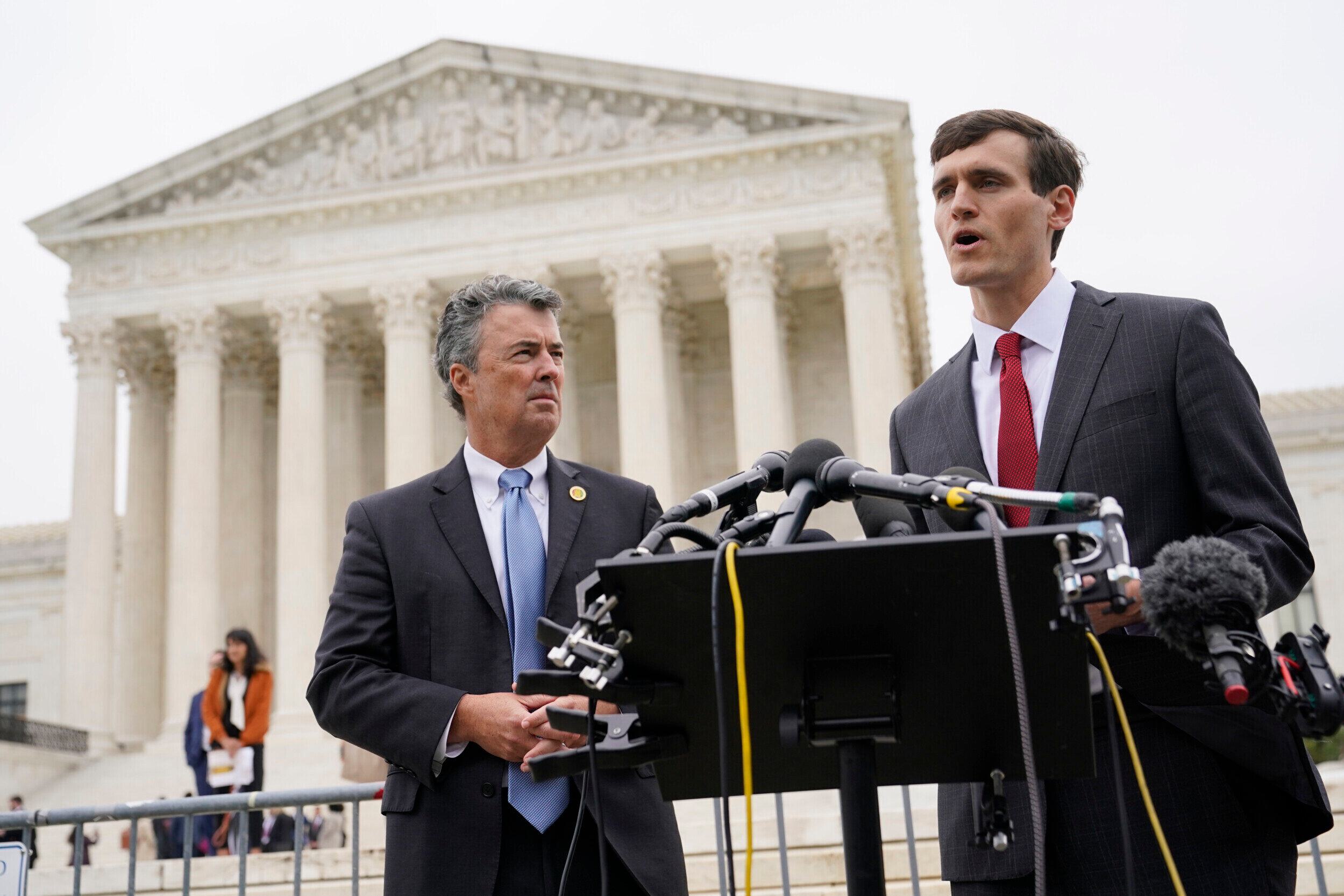According to Alabama Solicitor General Edmund LaCour, congressional redistricting plans can comply with the Voting Rights Act without having a "magic number" of majority-minority districts.
LaCour and other attorneys for the state made similar arguments as they had previously about prioritizing "traditional redistricting principles" in redistricting in their final filing over the weekend in Allen v. Milligan.
A three-judge panel in federal district court in January 2022 found Alabama's congressional map passed in 2021 likely unconstitutional and said a "remedial plan will need to include two districts in which Black voters either comprise a voting-age majority or something quite close to it." The U.S. Supreme Court affirmed the judges' opinion on appeal by the State of Alabama in June.
Under the new map, the seventh congressional district would have a 51% black voting-age population. The second congressional district would lose Autauga County, Conecuh County and parts of Elmore and Covington Counties while adding Lowndes, Macon and Russell Counties. The black voting-age population in the district would increase from 32% to approximately 40%.
LaCour said in a filing over the weekend, "A VRA-compliant plan does not require a magic number of majority minority districts, nor does it require hitting a racial target of 50% BVAP in any one district."
"An order requiring the State to abandon the 2023 Plan in favor of any one of the alternatives that Plaintiffs proposed earlier in this litigation or in the Legislature would be an order imposing a redistricting plan that sacrifices traditional principles for the pursuit of a racial goal," he added. "As compared to the 2023 Plan, Plaintiffs' proposed alternatives fare worse on the race-neutral, traditional criteria including county splits, compactness, and communities of interest."
LaCour went on to say that the plaintiffs' "challenge to the 2023 Plan would contravene two equal protection principles: the principle that race can never be used as a negative or operate as a stereotype and the principle that race-based action can't extend indefinitely into the future."
"Second, adopting a map like the ones Plaintiffs propose would require using race as a 'negative.' Plaintiffs' remedies sort voters on the basis of race to hit a predetermined racial target. To hit the target, Plaintiffs would break up communities of interest and expel people from their districts, all because of race," LaCour added.
A decision by the three-judge panel on whether the recently-passed redistricting plan will stand for the 2024 election is expected soon.
To connect with the author of this story or to comment, email caleb.taylor@1819News.com.
Don't miss out! Subscribe to our newsletter and get our top stories every weekday morning.










